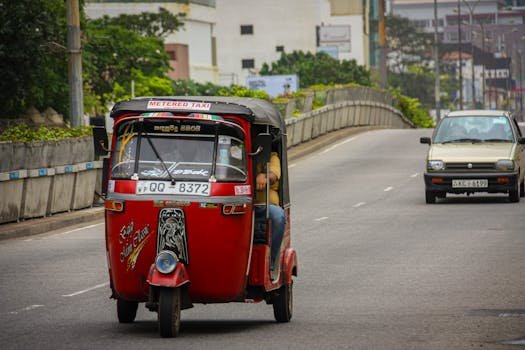As Sri Lanka gears up for the much-anticipated resumption of vehicle imports, the new government has yet to clarify its specific plans. However, officials from both the Central Bank and the Finance Ministry have confirmed that they can proceed with the framework established by the previous administration, as current economic conditions support this phased implementation.
Central Bank Governor Nandalal Weerasinghe emphasized that the financial conditions prompting the prior government to gradually lift the vehicle import ban remain unchanged despite the transition in leadership. “When the previous government made its decision, the CBSL provided recommendations after conducting the necessary technical analysis,” he noted.
The former administration had projected a complete easing of restrictions on private vehicle imports by February 1, 2025. Weerasinghe added that if financial conditions continue to progress as expected, upholding this decision would be possible. Nevertheless, the ultimate decision regarding vehicle imports will be determined by the Ministry of Finance.
According to News First, imports of public transport vehicles, including buses, began on October 1. Light vehicles, such as cars, are anticipated to follow, with imports expected to start in the first quarter of 2024.
The previous government outlined a three-stage plan for lifting the temporary suspension on the importation of motor vehicles and non-motorized goods, classified under 304 HS Codes:
- Stage 1: Importation of public passenger transport vehicles, special purpose vehicles, and other non-motorized goods is permitted starting October 1, 2024.
- Stage 2: The suspension on importing commercial or goods transportation vehicles will be lifted on December 1, 2024.
- Stage 3: Importation of personal use motor vehicles (including cars, vans, SUVs, pickups, etc.) will be allowed beginning February 1, 2025.
The previous administration also established several key conditions that remain in effect as the new government finalizes its strategy. These conditions include:
- An import policy prioritizing environmentally friendly vehicles, with stricter emissions standards shifting from Euro 4 to Euro 6 compliance. The policy encourages electric vehicles, especially the local assembly of electric three-wheelers, while prohibiting the import of petrol or diesel-powered three-wheelers, known for causing traffic accidents.
- Starting October 1, 2024, imports of motor cars, SUVs, motorcycles, and pickups will be restricted to those less than three years old. Public passenger and commercial vehicles will be limited to five years old, while special purpose and defense vehicles can be up to ten years old.
- Importers will need to sell and register vehicles within 90 days of importation, with penalties for delays. Additionally, an annual licensing system for importers, manufacturers, and traders will be introduced to regulate the motor vehicle market and ensure contributions to the national tax system.
While the reintroduction of imports is expected to pressure foreign exchange reserves, measures such as additional duties on motor vehicle imports have been put in place to help balance this impact.
Indika Sampath Merinchige, President of the Vehicle Importers Association of Lanka (VIAL), recently confirmed that the government is positively inclined to move forward with the import plan. However, he dismissed recent rumors of a 600% import tax on vehicles as unfounded, stressing that such an increase would devastate the market. “There’s no point in imposing such a high tax; no one would buy vehicles,” he stated, adding that some sales centers are spreading these rumors to offload their used vehicle stock at inflated prices.
As the import process unfolds in stages, many anticipate that the current inflated prices of vehicles in the local market will stabilize, providing relief to buyers eager for new options at more reasonable rates.
Source: Newswire

